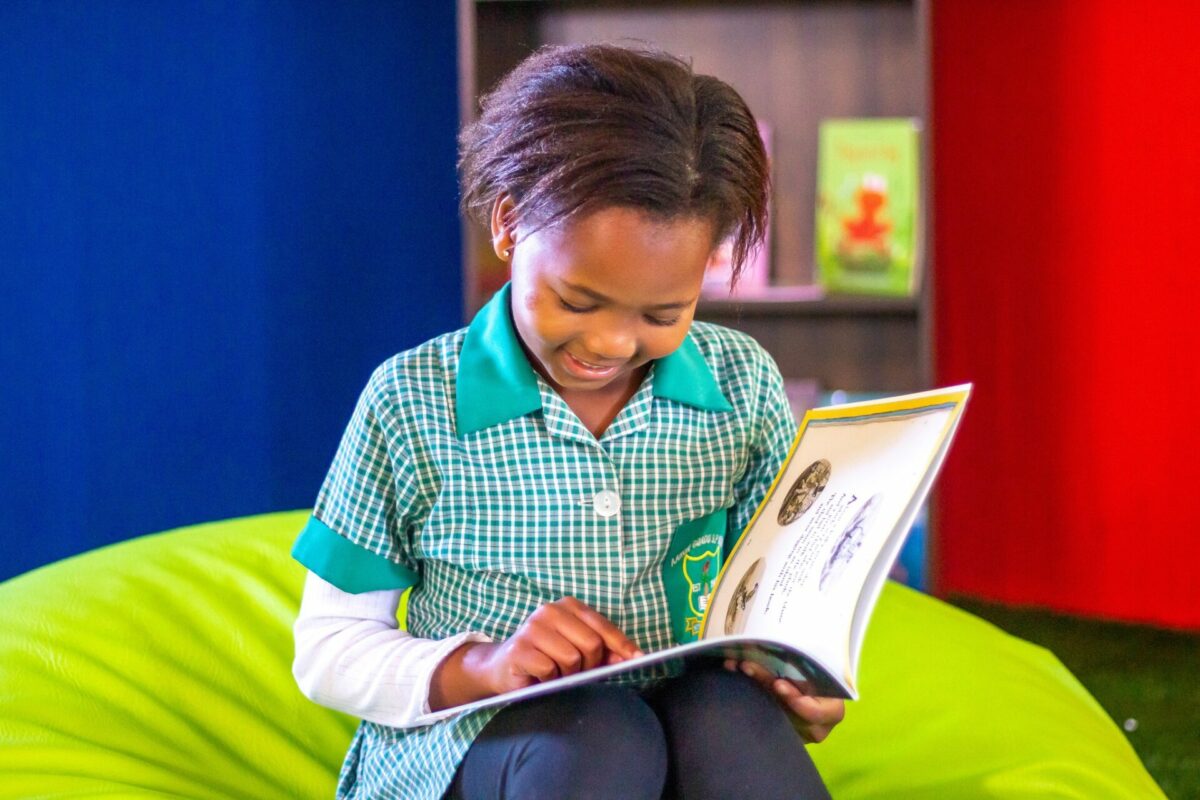Despite efforts to invest in education, South Africa’s poor literacy rate remains a long-standing concern. Over the years, government has failed to grow the number of children who can read for meaning. While we cannot deny these existing challenges, COVID-19 has also contributed to SA’s literacy crisis where 78% children in foundation phase are unable to read for comprehension in any of the official languages.
September is International Literacy Month. Even though reading for meaning seems like a distant reality, several organisations in the After School sector run various interventions to meet children where they are and recover learning gaps caused by the pandemic. We explore some of these interventions offered by Funda Wande, Zero Dropout Campaign and Masinyusane.
Multilingualism in the classroom through Funda Wande’s model
South Africa is a diverse country with eleven official languages. Funda Wande believes in embracing our diversity and multilingualism. Their programmes develop early reading literacy for children from Grade 1 to 3 and equip teachers to teach reading for meaning in African languages. Their focus pillars are, Materials Development, Teacher Training, Scalable & Sustainable Models for government uptake and Research & Advocacy.
Funda Wande’s model speaks to supporting teachers in the classroom. With school closures during the COVID pandemic, their programme suffered a great loss of contact and delivery time. Even though this was an opportunity to explore more innovative methods through at home workbooks and virtual teacher trainings, Funda Wande quickly realised that their intervention relied heavily on schools being back full time.
Now, post COVID, Funda Wande recovers learning losses through Teacher Guides, Workbook Resources and Coaching. To celebrate International Literacy Month, Funda Wande’s CEO, Nangamso Mtsatse participated in a conversation with literacy based organisations; Nali’Bali, WordWorks, The Bookery, Numeric and The Learning Trust discussing this year’s theme: “Transforming Literacy Learning Spaces”.
Reading for meaning with Zero Dropout Campaign
Poor academic performance is a strong indicator of school dropouts. To keep learners motivated, the Zero Dropout Campaign’s Reading for Meaning Programme is an accelerated catch-up intervention, helping learners to improve reading ability. They use Teaching at the Right Level (TaRL) to catch-up learners on foundational literacy and numeracy. The programme is facilitated by trained young people from the communities who volunteer through implementing partners. They also provide access to reading resources for learners and parents/caregivers through their WhatsApp platform and website.
To recover learning losses caused by COVID, Zero Dropout Campaign partners with community organisations to run After School reading for meaning programmes with learners. They assess learners to determine their reading levels so that the programme can be pitched at their level. This helps learners to integrate easily into the mainstream classroom and better understand what they are being taught.
To commemorate Literacy Month, Zero Dropout Campaign hosted a twitter space discussing the reasons why learners lack basic foundational skills.
Reading is the Foundation of all learning – Masinyusane
Masinyusane ‘s foundation phase literacy programme incorporates the Wordworks and Shine Literacy methods. They also run their own initiatives through promoting safe spaces and a healthy reading culture for children, as well as Nali’Bali reading clubs. While COVID caused many learning gaps in their programme, Masinyusane has been fortunate enough to raise funds that allow significant scaling up of their programmes this year and beyond in efforts to recover learning losses and introduce more children to the idea of catch-up.
Jim McKeown, Co-Founder of Masinyusane says that “Reading is a superpower”. He believes that reading is the foundation of all learning. The ability to read gives a child the ability to learn anything in the world. The ability to write gives a child the express and share their unique thoughts and ideas. Masinyusane’s focus this September is launching two of their brand-new centres in New Brighton and KwaZakhele to increase their reach and help hundreds of additional children in two important community primary schools.
The Learning Trust believes that After School programmes work. As part of our response to existing learning gaps post COVID, we convened the Catch-up Coalition project. Part of the Coalition’s objectives is to fast-track the development of knowledge in foundation phase. Some of the organisations in this Coalition are literacy focused and we aim to support them in scaling working practice models while increasing funding and collaboration opportunities.
